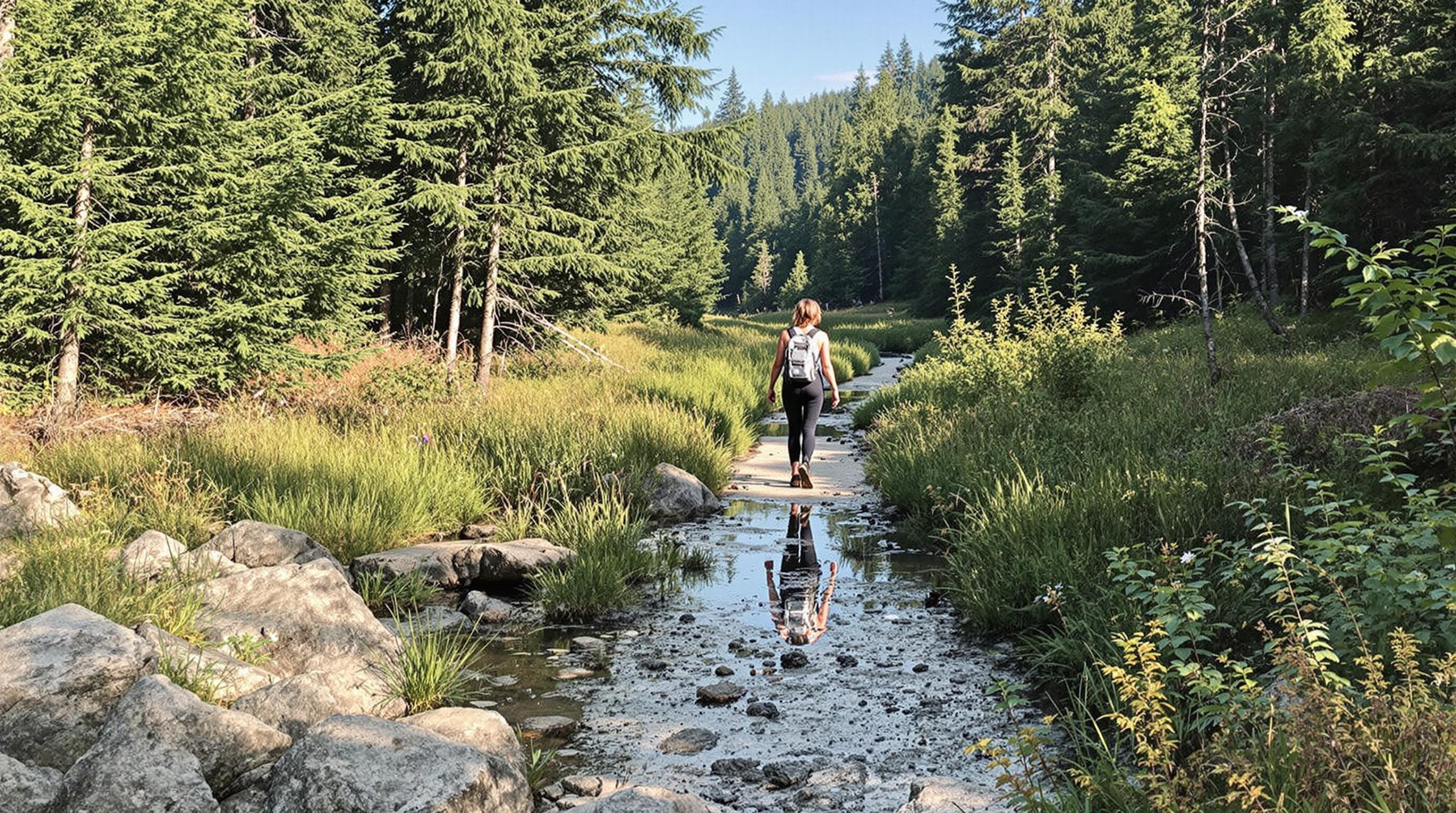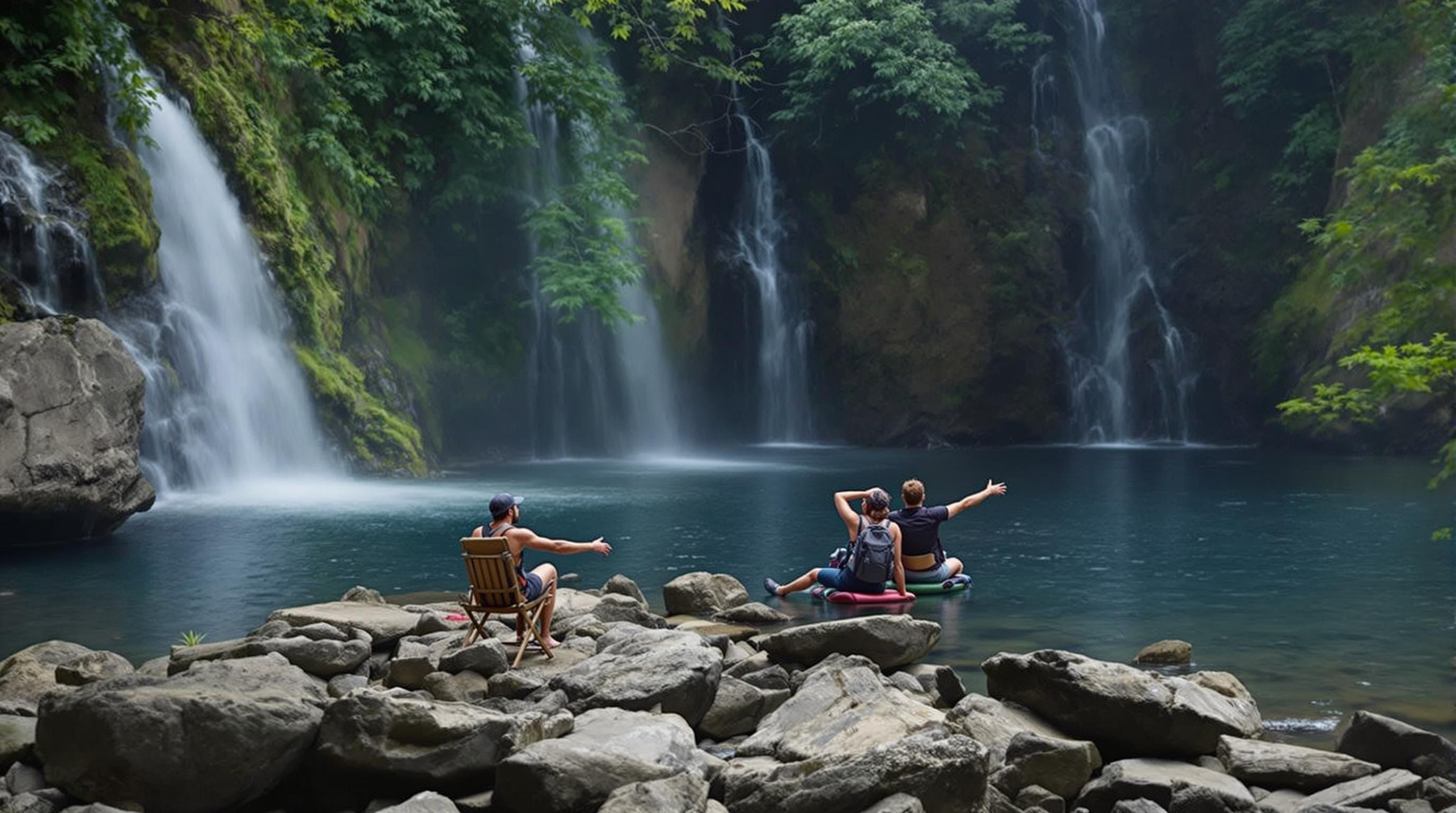Related Articles
- Uncharted Escapes: Navigating the Controversial Allure of Fringe Destinations and Their Untold Stories
- Uncharted Realms: The Surprising Intersection of Urban Legends and Adventure Travel in Offbeat Locations
- Curious Chronicles: Bizarre Transport Innovations Shaping Uncommon Explorations Across Unvisited Trails
- The Forgotten History of Eco-Adventuring: Learning from Indigenous Practices for Modern Exploration
- The Hidden Impact of Eco-Conscious Adventure Games on Environmental Education and Community Resilience
- Uncommon Routes: The Unexpected Appeal of Ghost Town Hikes in Eco-Friendly Exploration
7 Surprising Eco-Friendly Adventures That Boost Local Economies: Connect with Nature While Supporting Sustainable Communities
7 Surprising Eco-Friendly Adventures That Boost Local Economies: Connect with Nature While Supporting Sustainable Communities
7 Surprising Eco-Friendly Adventures That Boost Local Economies
In an age where eco-consciousness is paramount, many adventures align with a desire to connect with nature while contributing to sustainable communities. These eco-friendly adventures not only rejuvenate personal well-being but also drive economic growth in local regions. This article highlights seven surprising activities where environmental preservation and economic support go hand in hand, showcasing how spending time outdoors can make a profound impact.
From community-based tourism initiatives to guided nature excursions, explorers can find joy in activities that enhance local biodiversity while allowing communities to thrive. By participating in these eco-adventures, individuals can engage with both the scenery and the socioeconomic dynamics of the area. This comprehensive approach to travel promotes a deeper understanding of environmental issues and local cultures.
Each of these eco-friendly activities reveals a unique angle on sustainability, whether through promoting conservation efforts or supporting artisans and local vendors. In this exploration, we will uncover how, through seven distinct adventures, travelers not only discover breathtaking natural wonders but also bolster local economies, ensuring that their ecological footprints are positively impactful.
1. Eco-Tourism in Rainforests
Travelers are often drawn to the lush landscapes of rainforests, providing a unique opportunity for eco-tourism. Engaging in guided tours led by local indigenous communities helps spotlight the importance of forest preservation. Community members share their knowledge of sustainable practices and natural medicine, ensuring that visitors leave with a greater appreciation for these vital ecosystems.
By choosing eco-friendly lodging options and supporting local artisans during their stay, visitors contribute significantly to the local economy. It creates jobs and preserves cultural heritage, allowing communities to thrive. This mutually beneficial relationship promotes sustainable tourism that respects and celebrates the rich biodiversity of the rainforest.
Research shows that eco-tourism can generate economic benefits for local communities that may otherwise rely on unsustainable practices. By promoting conservation alongside responsible travel, eco-tourism actively works to protect our natural world while generating income for local families (World Wildlife Fund).
2. Sustainable Farm Stays
Experiencing farm life allows travelers to connect with nature and learn about sustainable agriculture. Staying on a working farm provides visitors with an immersive experience, from crop harvesting to animal care, while promoting local agricultural practices. Guests can also benefit from farm-to-table dining experiences that highlight seasonal and locally-sourced ingredients.
Farm stays play a crucial role in boosting local economies by creating job opportunities in hospitality and agriculture. Many farms engage in community-supported agriculture (CSA) programs which connect consumers directly to local farmers, ensuring that revenue helps maintain the farm's operations and sustainability efforts. Supporting these initiatives fosters greater awareness of food sourcing and ecological stewardship.
According to a survey conducted by the USDA, direct sales from farms have increased, proving that more consumers are interested in supporting sustainable practices. These farm stays offer memorable experiences while nurturing local economies through responsible tourism (USDA).
3. Beach Clean-Up and Eco-Volunteering
Participating in beach clean-up initiatives is an eco-friendly adventure that directly benefits marine ecosystems. Volunteers come together to remove trash while enjoying the stunning coastal scenery. This act of stewardship allows travelers to connect with nature, fostering a sense of responsibility for the environment.
Furthermore, many organizations that organize clean-up events often partner with local businesses, driving economic growth in coastal communities since every effort made can result in a safer and more enjoyable environment for both residents and visitors. This combination of environmental activism and tourism can transform a local economy, ensuring beaches remain beautiful and accessible.
Studies indicate that eco-volunteering can lead to more sustainable travel choices, with participants coming away with valuable skills and insights. Eco-volunteering empowers travelers while providing direct support to local economies reliant on healthy and thriving natural resources (Journal of Sustainable Tourism).
4. Wildlife Safaris with a Conservation Focus
Wildlife safaris are a popular way to experience the majesty of nature, but those designed with conservation in mind also contribute to local economies. Tours that incorporate conservation education help visitors understand the importance of wildlife protection while offering a financial incentive for locals to conserve their natural habitats.
By supporting eco-friendly safari companies, travelers can ensure that a portion of the proceeds goes back into conservation programs, directing funds to wildlife protection initiatives and community development. This approach fosters a collaborative relationship between tourists and local populations, focused on long-term sustainability.
According to research from the Wildlife Conservation Society, well-managed eco-tourism can provide essential funding for conservation efforts while boosting local economies by attracting tourists who are willing to pay for authentic experiences that support ecological well-being (Wildlife Conservation Society).
5. Cycling Tours Through Eco-Friendly Regions
Cycling tours not only promote healthy lifestyles but also offer an eco-conscious way to explore natural terrains. These tours often traverse through sustainable regions where cycling paths connect travelers with local sights and culture. This mode of transport minimizes carbon footprints while enjoying the fresh air and stunning landscapes.
Moreover, cycling tours lead to increased economic activity in local communities as cyclists often stop to shop, dine, and engage with local businesses. This supportive interaction encourages a vital flow of income that boosts small businesses and enhances community resilience against economic downturns.
The International Mountain Bicycling Association reports that cycling tourism can enhance local economies, with many regions finding success through well-developed cycling infrastructure that attracts both casual riders and serious enthusiasts. Consequently, investing in cycling tours leads to mutual benefits for both travelers and local economies (International Mountain Bicycling Association).
6. Forest Bathing and Wellness Retreats
Forest bathing, or Shinrin-yoku, involves immersing oneself in nature to promote well-being. This practice emphasizes mindfulness and the therapeutic benefits of spending time in forests. Travelers seeking solace can participate in organized retreats that foster a deeper connection to nature, enhancing mental health while supporting local wellness businesses.
These wellness retreats often focus on sustainable practices, where participants are encouraged to engage in eco-friendly activities like guided nature walks or organic cooking classes. These programs support local communities by creating jobs and promoting a healthy lifestyle aligned with sustainability goals.
A study by the International Journal of Environmental Research and Public Health found that spending time in nature significantly enhances mood and reduces stress levels. This benefit is amplified through community engagement, creating a symbiotic relationship between participants and local economies (International Journal of Environmental Research and Public Health).
7. Artisanal Workshops in Natural Settings
Participating in artisanal workshops, such as pottery, weaving, or painting, offers an immersive experience in local traditions while promoting sustainability. These workshops often focus on using natural materials or traditional techniques that honor the environment, fostering a sense of connection between art and nature.
By attending these workshops, travelers directly support local artisans and contribute to preserving cultural heritage. The influx of visitors interested in genuine experiences helps generate income, ensuring that traditional crafts continue to thrive in the face of modernization.
An economic report by UNESCO highlights that creative industries, including craftsmanship, can play a significant role in local economies by providing jobs and driving tourism. Such hands-on experiences not only enrich the traveler but also foster economic growth for communities invested in their cultural legacy (UNESCO).
In conclusion, these seven eco-friendly adventures reveal that connecting with nature does not only benefit our well-being but can also significantly boost local economies. By choosing to engage in experiences that advocate for sustainability and support local communities, travelers contribute to the preservation of environmental resources and cultural heritage. The interplay of adventure and responsible tourism ensures that future generations can enjoy the natural world in its pristine state while bolstering economies along the way.





